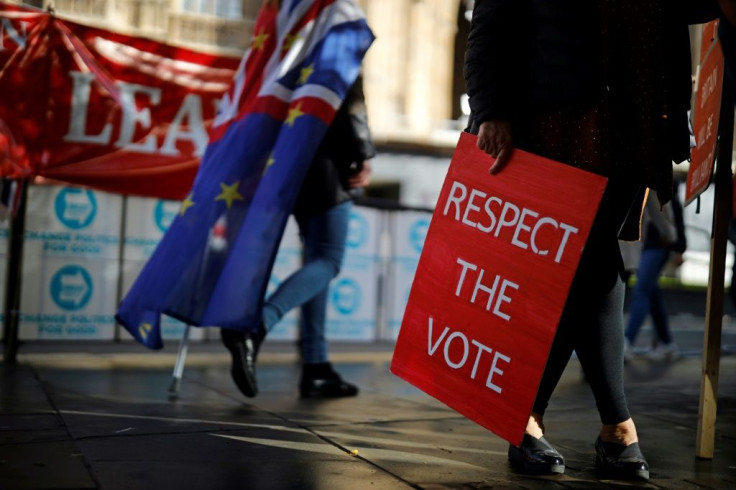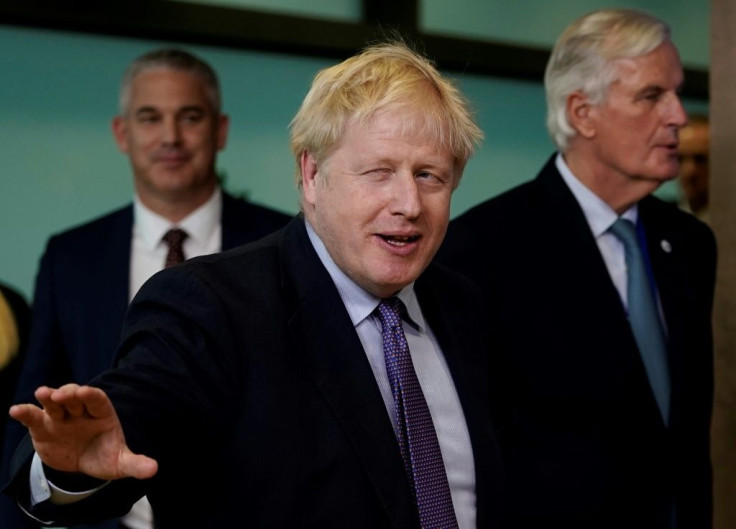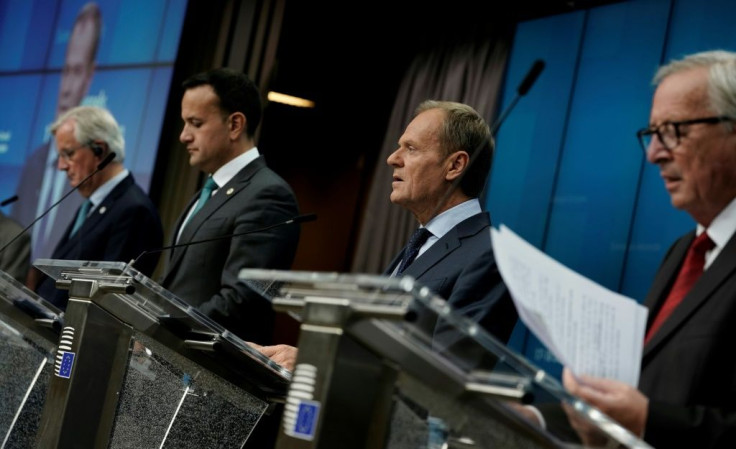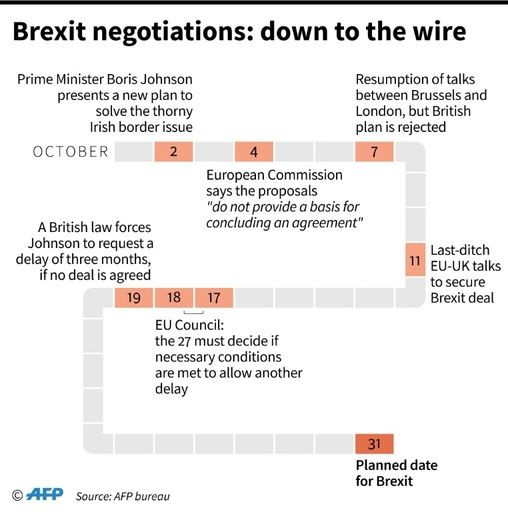What Next After UK, EU Agree Brexit Deal?

Britain and the European Union have struck a new Brexit accord but it is by no means a done deal, as Prime Minister Boris Johnson has to get it through parliament.
The House of Commons has rejected a previous divorce text three times, forcing Johnson's predecessor, Theresa May, to delay Brexit twice.
If that happens again on Saturday, her successor will be forced by law to ask Brussels to postpone again beyond the October 31 deadline.
Deal approved?
Leaders from the EU's 28 member states have signed off on the deal.
The British parliament is holding its first Saturday sitting since the 1982 Falklands War for MPs to debate the text.
If MPs approve the deal, it must be formally implemented through an EU Withdrawal Bill.
Such complicated legislation would normally take months but officials insist they can rush it through to allow Britain to leave the EU as planned on October 31.

The deal must finally be ratified by the European Parliament.
Rejection and delay?
There is a real risk MPs do not agree the deal on Saturday, meaning Johnson will be forced to ask the EU to delay Brexit, as he has no majority in the House of Commons.
Johnson will therefore require backing from hardcore eurosceptics in his own Conservative Party, anti-no deal MPs he expelled from the Tory ranks, and opposition Labour rebels.

Political analysts suggest that if the deal does pass, it would only be by a razor-thin margin.
If MPs reject the deal, a law will kick in that requires Johnson to write to EU leaders asking to delay Brexit for three months to January 2020.
The premier has repeatedly said he will not seek a third delay -- but Brexit minister Steve Barclay has said the government would abide by the law.
European Commission President Jean-Claude Juncker said the deal meant there was no need for a delay, though it is for EU leaders, not him, to decide upon.

Court challenge?
There is speculation Johnson could try to get around the law but this would likely see an immediate challenge in the courts.
Johnson has shown he is ready to take the unconventional route -- he decided to suspend parliament last month but the move was struck down by the Supreme Court.
A Scottish court last week declined to compel the premier to obey the law, on the basis that the government had already made "unequivocal assurances" that it would abide by the law.
'No-deal' Brexit?
The default legal position is that Britain leaves the EU on October 31 unless it asks to delay, and the other 27 member states agree.
Business and markets across Europe fear the shock of a sudden Brexit that even the government's own assessment says would cause economic damage.
With a delay to Brexit, this risk is postponed but still remains.
Both Johnson and Juncker are set against another delay, but the EU 27 might have other ideas.
Another election?
Johnson has already tried twice to get an early general election, to allow him to win back a majority in parliament.
But he needs the support of the main opposition Labour party to call one.
Labour says it will back an election when the threat of a "no deal" Brexit is off the table.
The opportunity could come when MPs vote on October 21 and 22 on Johnson's legislative agenda.
A second referendum?
Some parties may try to attach a second referendum to the deal, setting it up against remaining in the EU.
The People's Vote campaign is planning a mass rally outside parliament on Saturday to ramp up the pressure.
However, there is not yet clear support in the Commons for a new referendum.
© Copyright AFP 2024. All rights reserved.


















